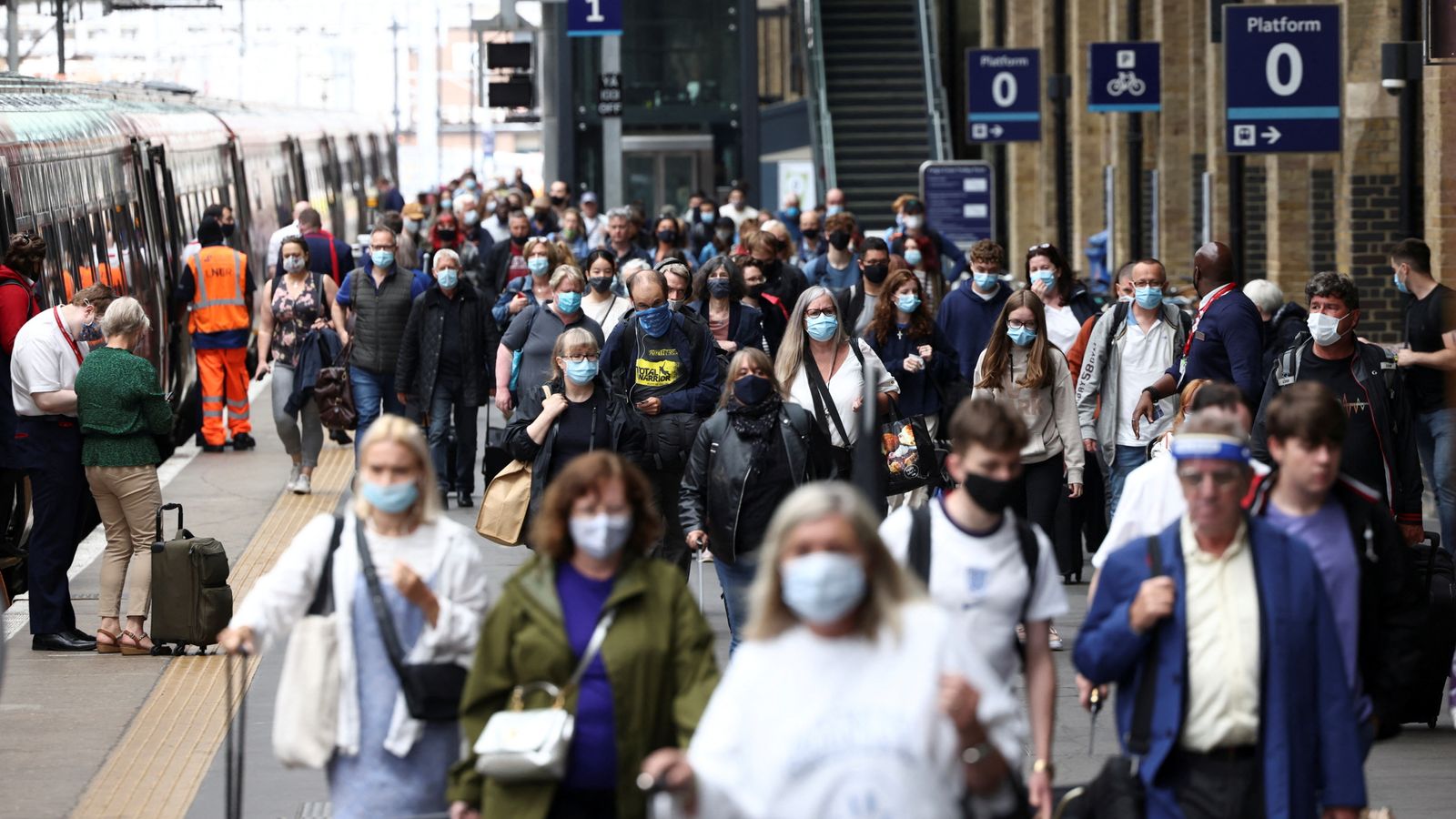Long COVID sufferers who had a mild bout of the virus should expect their symptoms to resolve within a year, researchers have suggested.
People with ongoing effects after illness have been concerned that lingering symptoms will not disappear.
But academics suggest that “mild disease does not lead to serious or chronic long-term morbidity”.
The team of Israeli researchers compared data on people who had not been infected with COVID-19 with people who suffered a mild form of the virus, meaning they suffered symptoms but did not require hospital care.
They also examined information on lingering symptoms after infection in both vaccinated and unvaccinated people.
Almost two million people’s information was looked at in the research, all of whom had taken a COVID-19 test between March 2020 and October 2021.
Data on almost 300,000 people who had a confirmed mild case of COVID was compared with the same number of people who had not contracted the disease.
The research team also examined information on a range of long COVID symptoms including loss of taste and smell, breathing problems, concentration and memory issues, also known as brain fog.
They discovered that symptoms of long COVID “remained for several months” but almost always resolved within a year.
“Lingering” breathing problems were also found to be more common among people who had not received a COVID vaccination compared with those who had.
Read more:
Holocaust survivor criticises Andrew Bridgen’s vaccine remarks
COVID samples to help to develop swab test for respiratory viruses
China reopens borders after three years of COVID isolation
“Although the long COVID phenomenon has been feared and discussed since the beginning of the pandemic, we observed that most health outcomes arising after a mild disease course remained for several months and returned to normal within the first year,” the academics wrote in The BMJ.
“This nationwide dataset of patients with mild COVID-19 suggests that mild disease does not lead to serious or chronic long-term morbidity and adds a small continuous burden on healthcare providers.
“Importantly, the risk for lingering dyspnoea was reduced in vaccinated patients with breakthrough infection compared with unvaccinated people, while risks of all other outcomes were comparable.”
The researchers said the largest number of long-term symptoms for at least six months was found among people aged 41 to 60 compared with other age groups.
The different types of coronavirus strains were not found to have an effect on the duration of long COVID.
An estimated 2.1 million people in the UK were experiencing self-reported long COVID at the start of December last year, according to data from the Office for National Statistics (ONS).
Long COVID is defined as symptoms continuing for more than four weeks after infection.
